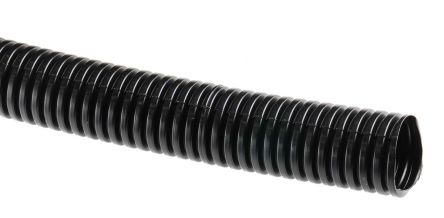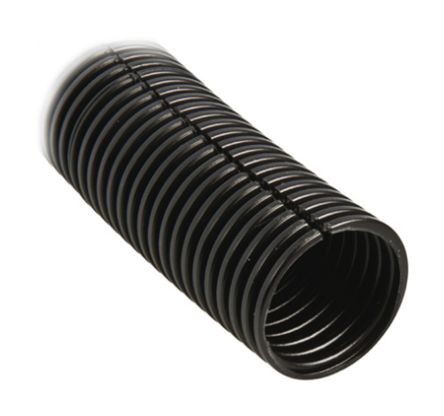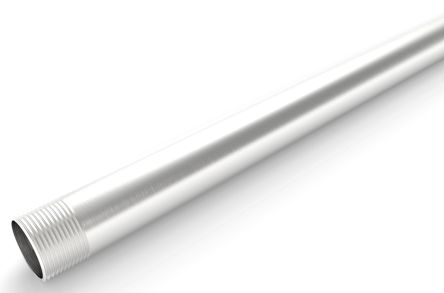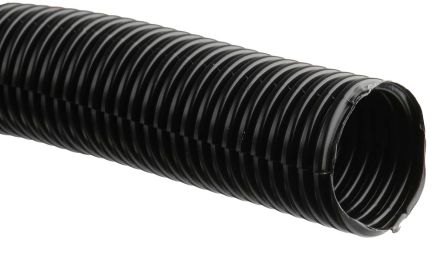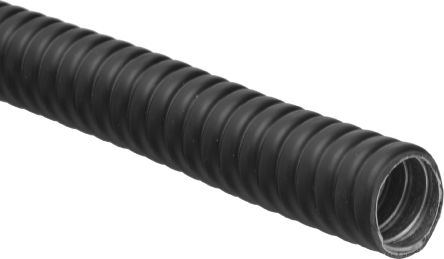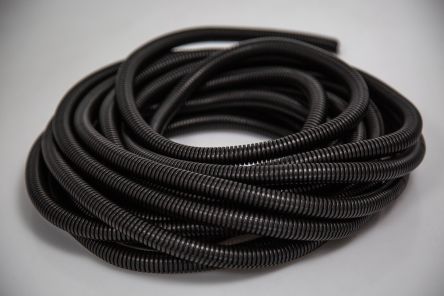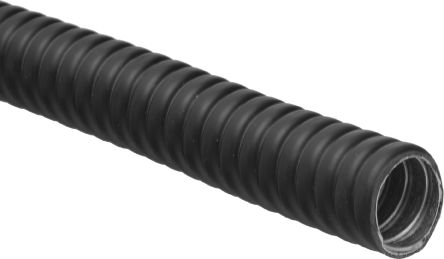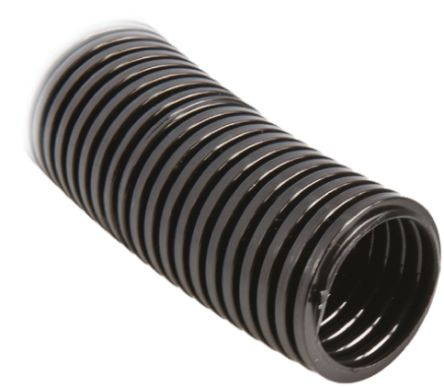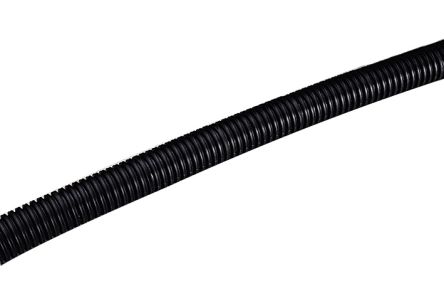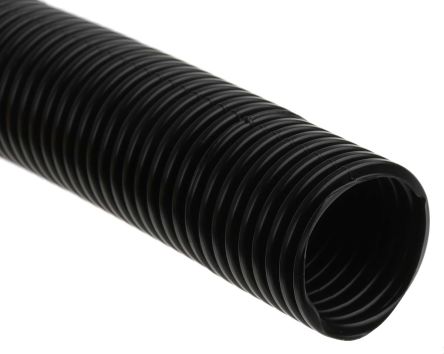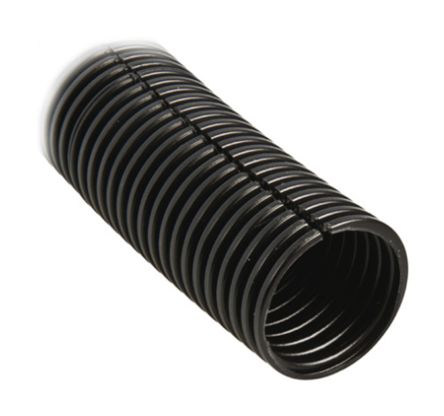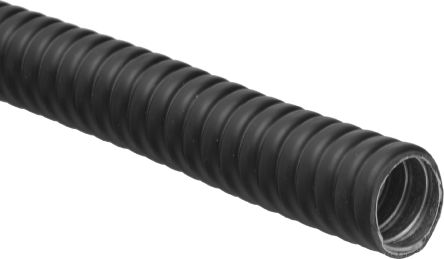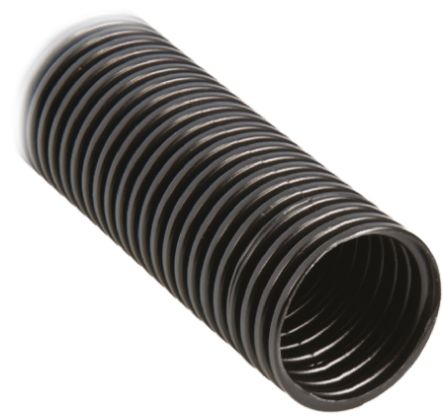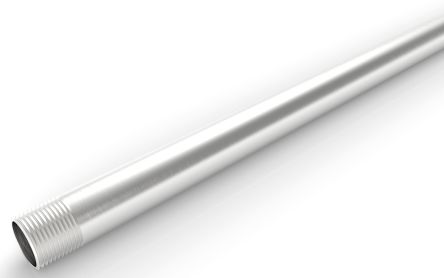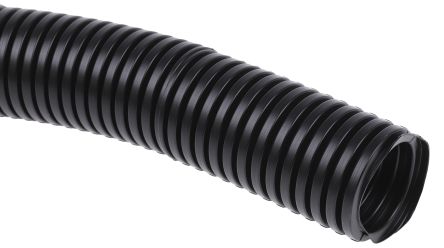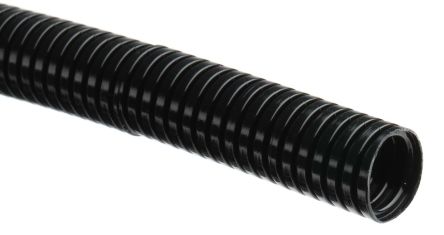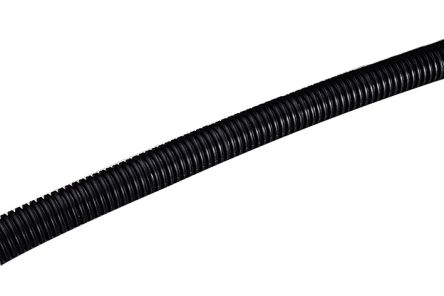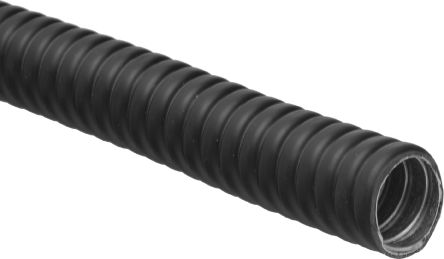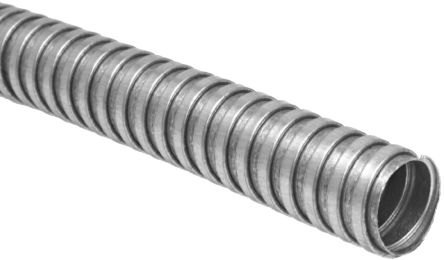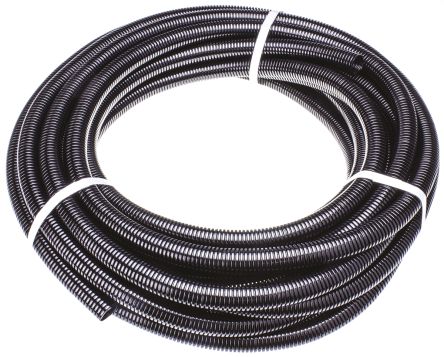- Automation & Control Gear
- Cables & Wires
- Enclosures & Server Racks
- Fuses & Circuit Breakers
- HVAC, Fans & Thermal Management
- Lighting
- Relays & Signal Conditioning
- Switches
- Batteries & Chargers
- Connectors
- Displays & Optoelectronics
- ESD Control, Cleanroom & PCB Prototyping
- Passive Components
- Power Supplies & Transformers
- Raspberry Pi, Arduino, ROCK, STEM Education & Development Tools
- Semiconductors
Conduit
導線管是一種用於保護和引導電線的管材。它們通常由塑料、鋼、鍍鋅鋼、尼龍、PVC、PP 和鋼彈簧線等材料製成。電線管尤其適用於保護暴露在開放區域、地下或牆壁內的電線。
電導管的用途
- 保護電線: 防止電線因外力(如撞擊、擠壓)、潮濕、高溫等因素而受損,延長電線使用壽命。
- 固定電線: 將電線固定在導管內,防止電線鬆動造成短路或其他安全隱患。
- 美化線路: 將雜亂的電線隱藏在導管內,使室內環境更加整潔美觀。
- 防止電磁干擾: 部分金屬導管具有屏蔽作用,可以減少電磁干擾。
- 防火: 一些導線管具有防火性能,可以延緩火勢蔓延,保護人員和財產安全。
導線管的種類
- IMC(中間金屬導管): 一種更纖薄、更輕的 RMC 版本,通常可接受與 RMC 相同的用途。
- RMC(剛性金屬導管): 一種最耐用的電氣導管類型,由鍍鋅鋼製成。具有出色的保護性能,可以支撐盒、電纜和其他電氣設備。
- EMT(電氣金屬管): 一種薄金屬管,易於使用導管彎曲器彎曲和扭曲。可以用小型或 12V 往復鋸和高 TPI 刀片切割。
- FMC(柔性金屬導管): 具有螺旋形狀,允許在短距離內彎曲。它適用於在狹窄空間或現有設備周圍添加導管。
- LFMC(液密柔性金屬導管):與 FMC 類似,但具有防水覆蓋層,適用於室外使用。
- ENT(電氣非金屬管): 一種柔性 PVC 導管管,可用於代替 EMT 並在牆後和混凝土中運行。它具有 2 小時的防火等級,但不耐紫外線。
- 剛性 PVC: 使用前加熱和彎曲。如果安裝正確,它是防水的,具有與水管相同的特性,可用作電氣導管。
- 鍍鋅鐵 (GI) 導管: 一種由鐵和鋅混合物製成的電氣導管,具有保護性的鍍鋅塗層。常用於電氣安裝中,用於保護和路由電線。
導線管的規格
- 外徑 (OD):導線管的外徑尺寸,單位通常為毫米(mm)。
- 內徑 (ID):導線管的內徑尺寸,單位通常為毫米(mm)。
- 壁厚 (WT):導線管的壁厚,單位通常為毫米(mm)。
- 長度:導線管的長度,通常以米(m)為單位。
- 材質:導線管的材質,常見的有PVC、鍍鋅鋼、不鏽鋼等。
- 耐溫性:導線管能夠承受的最高溫度。
- 耐壓性:導線管能夠承受的最高壓力。
- 阻燃性:導線管的阻燃等級。
導線管的優點
- 安全可靠的布線: 電線管為電線提供安全可靠的通道。它封閉和保護電線,防止暴露時受到損壞。
- 適用於潮濕場所: 電線管由耐潮濕和濕度的材料製成。非常適合用於潮濕或潮濕的環境,如浴室和廚房。
- 長期使用: 電線管經久耐用,適用於長期安裝。它可以承受日常使用的磨損。
- 易於安裝: 電線管相對容易安裝。它可以切割成尺寸並彎曲以繞過角落,是各種應用的多功能選擇。
- 經濟實惠: 電線管價格實惠。它廣泛可用,適用於住宅和商業安裝。
導線管的品牌推薦
RS 歐時為您提供了不同品牌的導線管,如RS PRO、Flexicon、Adaptaflex、PMA、Kopex等多款不同規格、型號的產品供您挑選,從而滿足不同的應用場景需求。
即日訂購,最快次日發貨,網上落單滿額即享免運費!
